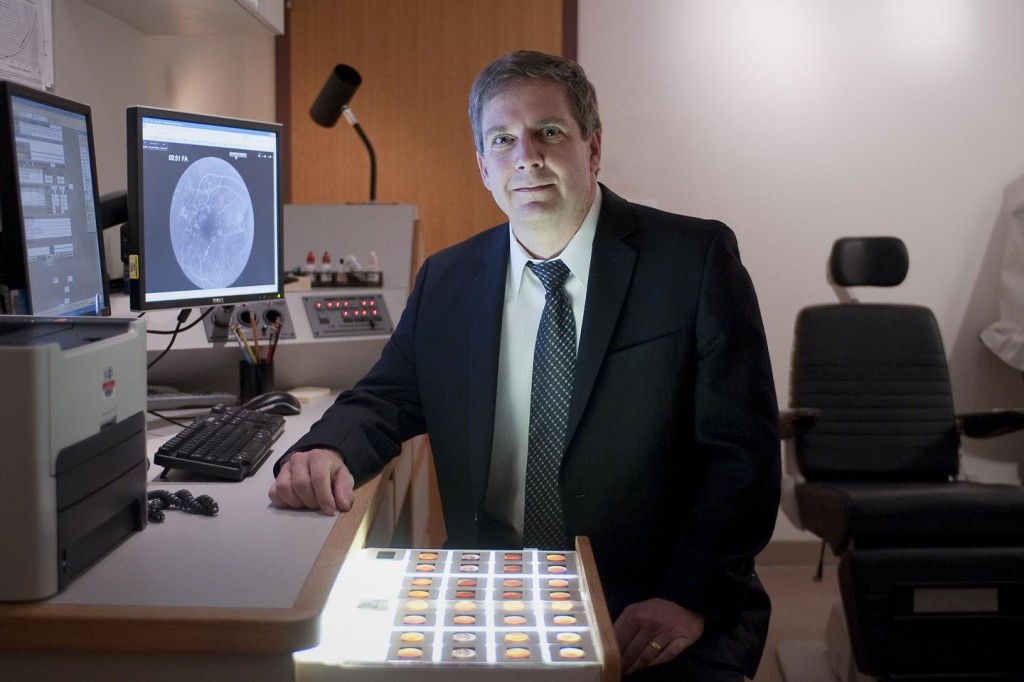Experimental Cure for Type 1 Diabetes Has Almost 80-percent Success Rate
An experimental cure for Type 1 diabetes has a nearly 80 percent success rate. The results offer possible hope of curing a disease that affects 3 million Americans.
Low Carbohydrate Diet May Reverse Kidney Failure in People with Diabetes
Researchers have for the first time determined that the ketogenic diet may reverse impaired kidney function in diabetics. They also identified a panel of genes associated with diabetes-related kidney failure, whose expression was reversed by the diet.
Researchers Find Potential New Non-Insulin Treatment for Type 1 Diabetes
Researchers have discovered a hormone pathway that potentially could lead to new ways of treating type 1 diabetes independent of insulin.
Home Urine Test Measures Insulin Production in Diabetes
A simple home urine test has been developed which can measure if patients with Type 1 and Type 2 diabetes are producing their own insulin.
Human Umbilical Cord Blood Cells Aid Diabetic Wound Healing
Transplanting human umbilical cord blood-derived endothelial progenitor cells (EPCs) has been found to "significantly accelerate" wound closure in test models.
New Targets in Preventing End-Stage Renal Disease and Death of Diabetics
Patients with both type 1 diabetes and CKD have an increased risk of adverse outcomes. Despite aggressive treatment, many patients with type 1 diabetes and overt nephropathy develop End-Stage Renal Disease and/or succumb to a premature death.
Dietary Intervention Can Prevent the Disease Process Leading to Type 1 Diabetes
A Finnish study confirms the hypothesis that infant feeding plays a role in the initiation of the disease process leading to type 1 diabetes in children carrying increased genetic disease risk.
T Cell Discovery Shows Promise for Type 1 Diabetes Treatment
A research team has identified the role of a type of T cell in type 1 diabetes that may lead to new treatment options for young patients.
Researchers Develop Way to Measure Blood Glucose Levels by Shining Light on the Skin
To minimize that pain and inconvenience, researchers at MIT's Spectroscopy Laboratory have developed a noninvasive way to measure blood glucose levels using light.
Diabetic Potential to Create Own Insulin
The results of the research offer the hope that, in future, it might be possible to encourage a newly diagnosed type 1 diabetes patient's own beta cells to reproduce as a means of replacing those being destroyed by the disease.
Discovery Could Help Diabetics and Others With Slow-To-Heal Wounds
A new discovery about the wound-healing process could lead to better treatments for diabetics and other patients who have wounds that are slow to heal.
Artificial Pancreas Successfully Controls Blood Sugar More Than 24 Hours
An artificial pancreas system that closely mimics the body's blood sugar control mechanism was able to maintain near-normal glucose levels without causing hypoglycemia in a small group of patients.
Researchers Use Novel Nanoparticle Vaccine to Cure Type 1 Diabetes
Using a sophisticated nanotechnology-based "vaccine," researchers were able to successfully cure mice with type 1 diabetes and slow the onset of the disease in mice at risk for the disease.
JDRF Funded Researchers Test Topical Drug to Treat Diabetic Macular Edema
Early-stage human clinical trials showed that a new topical drug was safe and had biological effects in a type of diabetic eye disease, and may offer researchers a new approach to prevent and treat diabetic macular edema.
Study: Leptin Therapy Shows Promise For Type 1 Diabetes
Using leptin alone in place of standard insulin therapy shows promise in abating symptoms of type 1 diabetes, UT Southwestern Medical Center researchers report.
Difficulty Trusting and Reaching Out to Others May Shorten Diabetes Patients’ Lives
Self-reliant diabetes patients had a 33 percent higher mortality rate during a 5-year study, compared to diabetes patients who interacted easily with others and sought support.






